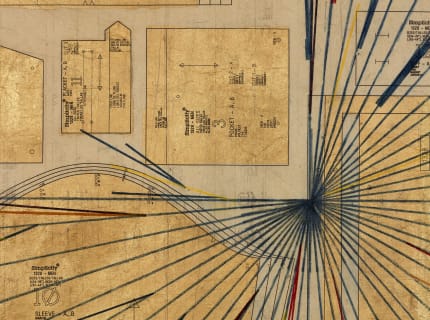ule ole allez: Locust Projects
Ronny Quevedo's one person exhibition ule ole allez at Locust Projects in Miami, FL.
The institution's press release follows:
ule ole allez, a new project by Ecuadorian-born, Queens-based artist Ronny Quevedo at Locust Projects honors the passion for play and sense of community found in Miami’s Caribbean, Central, and South American soccer and futsal playing communities and brings it into the gallery through a collaborative art project. Futsal matches will capture players’ movements on the gallery’s white floors lined with the colorful boundaries of the playing field creating a massive installation. Combined they serve as a metaphor for the collective immigrant experience. This is Quevedo’s first solo show in Miami.
The artist will invite teams to play on a specific date or series of dates to play matches. The matches will take place at an existing site of play and abide by local rules. Matches will be open to the public, and culminate in a trophy presentation to the participating teams. The field of play is blanketed by a covering made of canvas and paper, and throughout each game traces and marks from the players’ movements accumulate, creating a vestige of community action, which is then installed throughout the gallery.
ARTIST STATEMENT
The effect of relocation and displacement generates works about adaptation, memory and transformation. The movement and action within sports is a metaphor for an insistence on survival and constant adaptation. This use of play is a subversive transformation to the rules and capabilities placed upon people when the conditions of a society become oppressive. By incorporating games I invoke an architectural and narrative space – where boundaries are malleable, limits are negotiable and competition is a generative force for evolving identities.
The parallels between play and migration generate from indoor soccer leagues in New York City. Played on weekends at local public schools, these leagues are coordinated and operated by migrant Latin American and Caribbean communities. The questioning of inheritance and memory are conceptual markers in my practice. The act of passing – passing down, passing on, passing the ball – offers generative contemplations of my points of origin. My focus is the dialectic of nomadism and cultural production as complemented by the Edouard Glissant’s ‘Poetics of Relation’. He emphasizes the influence of the periphery onto central forms of culture. He claims that the margins offer a new understanding of the ‘center’. My biography echoes this concept having been born in Ecuador, raised in The Bronx (a pre-dominantly Caribbean and Black community at that time) and determining my own identity as a migrant in relation to those who have similar experiences of displacement.


